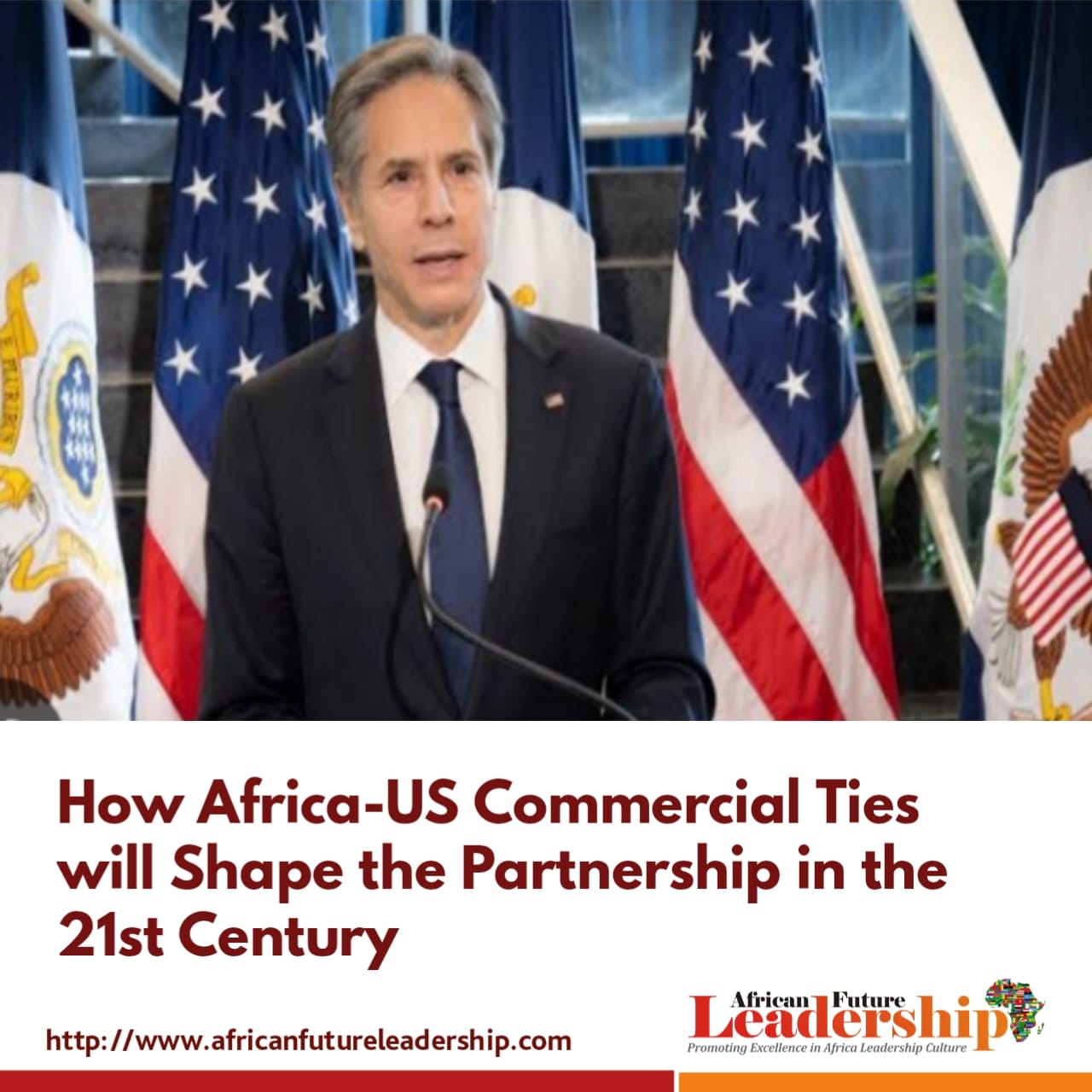By our Correspondent
Following various socio- economic developments around the world recently, in early August, with its release of its strategy toward sub-Saharan Africa, the Biden-Harris administration laid out a bold vision for a 21st-century US-Africa partnership. The strategy and the upcoming Africa Leaders Summit, which President Biden and his deputy Harris will host in December, comes at the right time.
In this light, Africa’s economic transformation — spurred by its young and rapidly urbanising populations, digitalisation initiatives, abundant natural and human resources, and a continent-wide commitment to free trade — has proceeded rapidly.
Regardless, however, the current global environment poses significant risks and uncertainties. As African economies face lagging recoveries from the pandemic, Russia’s war of aggression against Ukraine is contributing to food, fertiliser, and energy price shocks that are further burdening the continent. These come on the backdrop of global inflation, rising debt, and increasingly frequent climate-related shocks on African economies.
Hence, the Biden-Harris administration and many in Congress recognise that the US and African countries are indispensable partners in charting a path out of these current crises. They can help the continent navigate the uncertain global environment and meet the most pressing global challenges, which threaten stability and prosperity for us all – from tackling climate change and food insecurity to reversing the rising tide of democratic backsliding.
READ MORE: Senegal and Tunisia Break Records at the World Cup
Therefore, working together holds the promise of realising the tremendous potential that trade, investment, and commerce offer partners on both sides of the Atlantic — in ways that align with the African Union’s Agenda 2063 blueprint for continental transformation.
‘Thus, in the quintessential 21st century partnership’ the US says, categotically:
We believe that the US-Africa partnership can be a quintessential 21st century partnership — one shaped by visionary contributions from the private sector, women and youth, as well as diaspora communities. Indeed, in our recent engagements, African leaders have been evermore vocal about the importance of bilateral commercial ties and the mutual benefits. They often view US private industry and finance as partners of choice, while American companies typically offer superior technology and quality of equipment and services.
The statement added: They have a strong record of investing in local talent, promoting innovation and entrepreneurship, and providing access to more transparent commercial financing. Time and again, we have seen these investments in local talent lead to the creation of African businesses and jobs, and in many cases, a virtuous cycle of long-term partnership with American companies. Diaspora-led US companies, including women-led small and medium enterprises, offer additional advantages, including an awareness of African markets, consumer preferences, and local environments.
Remarkably then, US businesses are seeking new opportunities in Africa and are reevaluating long-held perceptions about the risks.
It is held that with these potential partnerships in mind, US businesses are seeking new opportunities in Africa and are reevaluating long-held perceptions about the risks of doing business on the continent—and for good reason. Continent-wide and country-by-country efforts are underway to foster an improved enabling environment for trade and investment on the continent.
That’s why in 2018, for instance, a landmark agreement established the African Continental Free Trade Area (AfCFTA), the world’s largest free trade area, currently with 54 signatories and the potential to lift millions of Africans out of extreme poverty while boosting incomes for millions more. Africa’s ongoing digital transformation is also remaking daily life on the continent: from the exponential growth in mobile money technologies to the digital creative economy covering music, art, and fashion in several countries, to investments in broadband internet access.
Also, countries are rapidly scaling up investment in clean and renewable energy technologies and developing clean energy supply chains, including critical minerals. Still, others aim to attract private investment as well as private sector participation in their social and infrastructure services. While US businesses have been active in many of these areas, there is much more they can do as commercial partners.
In mind too is the ‘Ramp-up private sector engagement in Africa’
The Biden administration, with the support of Congress, has taken several steps to ramp-up private sector engagement in Africa. This includes working with Prosper Africa, technical and advisory support for the African Union’s (AU) implementation of the AfCFTA; the Partnership for Global Infrastructure and Investment (PGII); the upcoming US-Africa Business Forum; and the ongoing implementation of the African Growth and Opportunity Act (AGOA). Together, the US government and the US private sector can do more to make the vision of a 21st-century US-Africa partnership a reality.
So, first, the US must continue to work with officials on the continent and international financial institutions, such as the IMF and World Bank, to lay the foundation for economic sustainability as a precursor to attract private investment.
Again, this requires all bilateral official creditors and private creditors – including those in China – to cooperate in addressing the looming debt challenges of a number of African countries. This is a critical element of being reliable partners in Africa’s sustainable development.
And second, the US must significantly increase its support for high-quality climate-resilient energy, digital, transportation, and other infrastructure in Africa, under the Biden administration and G7’s PGII. These efforts should have a robust private sector orientation — enabling US and African companies to accelerate the development of bankable projects that effectively leverage global and local investment capital across a number of sectors.
Importantly, it is time to take decisive steps to deepen commercial, investment, and trade ties between Africans and their US partners.
Third, and closely, we should continue to amplify our commercial diplomacy and advocacy efforts, led by the Commerce Department, for US businesses competing on projects across Africa. This means increasing the footprint of our Foreign Commercial Service across the continent to assist US companies to compete effectively.
Fourth, as is pertinently the case, we should expand existing efforts by the Commerce Department, US Department of Agriculture, the Export-Import Bank, the US Trade and Development Agency, the State Department, and several other agencies, to engage US businesses to capitalise on export opportunities on the continent. This should include Diaspora-owned, women-owned companies as well as those in the heartland.
Hence, it is time to take decisive steps to deepen commercial, investment, and trade ties between Africans and their US partners, and to realise the promise of greater prosperity both on the continent and here at home. Will we seize on this opportunity?




